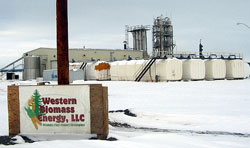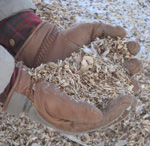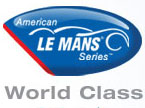 A Japanese company is planning on building a bioethanol making the green fuel from a plant that is said to yield more ethanol per hectare than any other biofuel crop currently being grown.
A Japanese company is planning on building a bioethanol making the green fuel from a plant that is said to yield more ethanol per hectare than any other biofuel crop currently being grown.
This story posted on Checkbiotech.org says Necfer Corp. will make ethanol from sago palm trees at a testing refinery in Malaysia:
Necfer has developed its own dedicated fermentation technology to convert the resource into biofuel.The true sago palm (Metroxylon sagu) has been described as mankind’s oldest food plant with the starch contained in the trunk used as a staple food in southeast Asia. Traditionally, hunter-gatherers use a complex and labor-intensive process of felling the tree, splitting it open, removing the starch and cleaning out its poisonous substances, after which it is ready to be consumed. The carbohydrate itself is very nutritious and some of us may have even tasted it because some modern starch products (tapioca flour) are made from it. As these sago-growing hunter-gatherers migrate to the cities, they abandon their healthy starch-rich diet and choose for fat and sugar food habits that don’t differ much from ours.
Sago palm is estimated to yield between about 2,000 and 2,500 gallons of ethanol for each hectare grown… even more than sugarcane.


 Cellulosic ethanol is now in production at the first small scale waste wood commercial facility operating in the U.S.
Cellulosic ethanol is now in production at the first small scale waste wood commercial facility operating in the U.S.  Located just 1 mile South of Upton, Wyoming, the plant was engineered, constructed and is operated by
Located just 1 mile South of Upton, Wyoming, the plant was engineered, constructed and is operated by  KL’s cellulosic ethanol plant is converting waste wood into a renewable fuel. The current production facility is utilizing soft woods, but successful test runs have occurred making use of waste materials such as cardboard and paper.
KL’s cellulosic ethanol plant is converting waste wood into a renewable fuel. The current production facility is utilizing soft woods, but successful test runs have occurred making use of waste materials such as cardboard and paper. U.S. Department of Energy Secretary Samuel W. Bodman
U.S. Department of Energy Secretary Samuel W. Bodman  The
The  California-based
California-based  The biofuels company received the award for its innovative approach to biofuels production and distribution infrastructure. The award recognizes Primafuel’s expertise across the entire fuel supply chain and its commitment to developing new, low-carbon biofuels.
The biofuels company received the award for its innovative approach to biofuels production and distribution infrastructure. The award recognizes Primafuel’s expertise across the entire fuel supply chain and its commitment to developing new, low-carbon biofuels.  In a technological breakthrough for both renewable fuels and racing, cellulosic ethanol will be used for the first time in motor sports this year, paving the way for the biomass fuel to be used commercially.
In a technological breakthrough for both renewable fuels and racing, cellulosic ethanol will be used for the first time in motor sports this year, paving the way for the biomass fuel to be used commercially. Through the marketing partnership with the
Through the marketing partnership with the  To build a future of energy security, we must trust in the creative genius of American researchers and entrepreneurs and empower them to pioneer a new generation of clean energy technology. Our security, our prosperity, and our environment all require reducing our dependence on oil. Last year, I asked you to pass legislation to reduce oil consumption over the next decade, and you responded. Together we should take the next steps: Let us fund new technologies that can generate coal power while capturing carbon emissions. Let us increase the use of renewable power and emissions-free nuclear power. Let us continue investing in advanced battery technology and renewable fuels to power the cars and trucks of the future. Let us create a new international clean technology fund, which will help developing nations like India and China make greater use of clean energy sources. And let us complete an international agreement that has the potential to slow, stop, and eventually reverse the growth of greenhouse gases.
To build a future of energy security, we must trust in the creative genius of American researchers and entrepreneurs and empower them to pioneer a new generation of clean energy technology. Our security, our prosperity, and our environment all require reducing our dependence on oil. Last year, I asked you to pass legislation to reduce oil consumption over the next decade, and you responded. Together we should take the next steps: Let us fund new technologies that can generate coal power while capturing carbon emissions. Let us increase the use of renewable power and emissions-free nuclear power. Let us continue investing in advanced battery technology and renewable fuels to power the cars and trucks of the future. Let us create a new international clean technology fund, which will help developing nations like India and China make greater use of clean energy sources. And let us complete an international agreement that has the potential to slow, stop, and eventually reverse the growth of greenhouse gases.  The U.S. branch of Dutch-based Corporate Express is converting its delivery trucks to biodiesel.
The U.S. branch of Dutch-based Corporate Express is converting its delivery trucks to biodiesel.
 Fresh food giant Dole has a fresh idea about how it is fueling its fresh vegetable harvesters in the western United States: use biodiesel.
Fresh food giant Dole has a fresh idea about how it is fueling its fresh vegetable harvesters in the western United States: use biodiesel. A California company claims to have a new way to convert biomass into ethanol.
A California company claims to have a new way to convert biomass into ethanol.